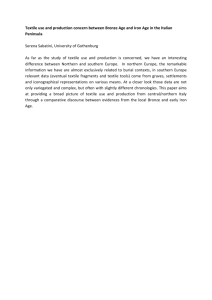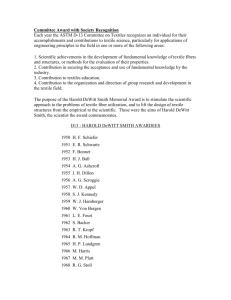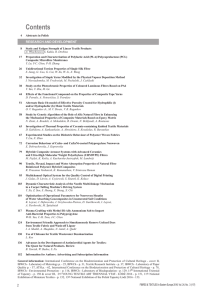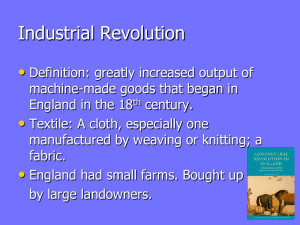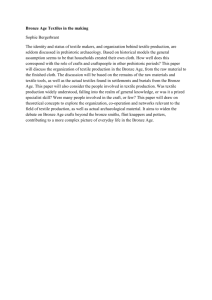ERASMUS+ Project Advan2Tex: Overview and Objectives
advertisement
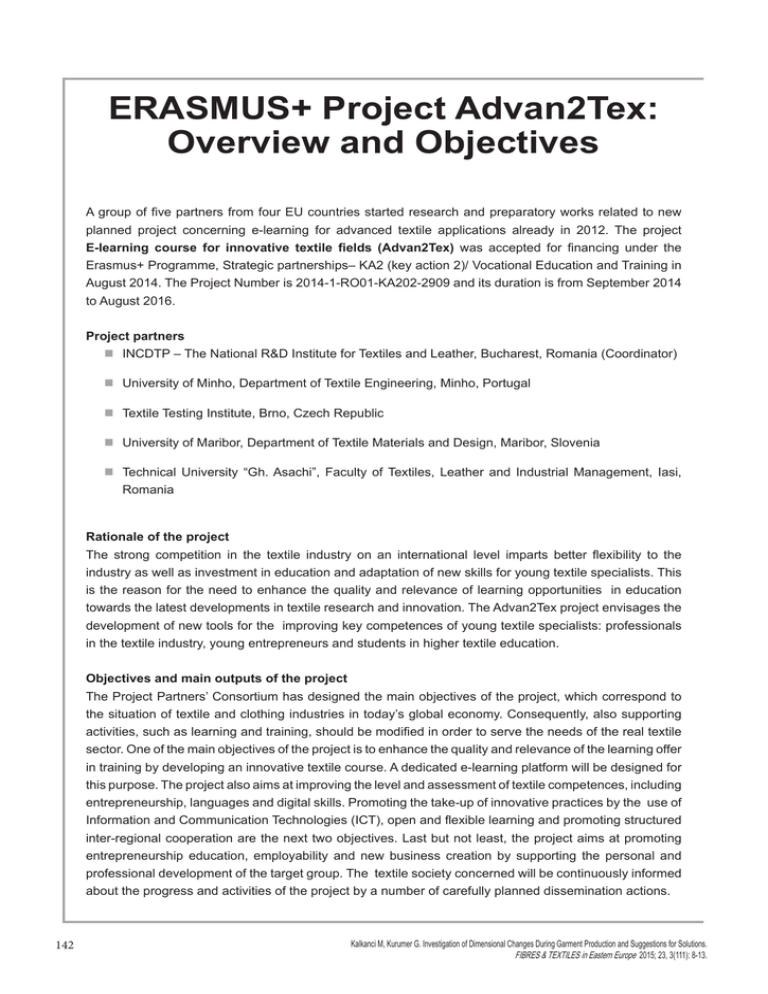
ERASMUS+ Project Advan2Tex: Overview and Objectives A group of five partners from four EU countries started research and preparatory works related to new planned project concerning e-learning for advanced textile applications already in 2012. The project E-learning course for innovative textile fields (Advan2Tex) was accepted for financing under the Erasmus+ Programme, Strategic partnerships– KA2 (key action 2)/ Vocational Education and Training in August 2014. The Project Number is 2014-1-RO01-KA202-2909 and its duration is from September 2014 to August 2016. Project partners n INCDTP – The National R&D Institute for Textiles and Leather, Bucharest, Romania (Coordinator) n University of Minho, Department of Textile Engineering, Minho, Portugal n Textile Testing Institute, Brno, Czech Republic n University of Maribor, Department of Textile Materials and Design, Maribor, Slovenia n Technical University “Gh. Asachi”, Faculty of Textiles, Leather and Industrial Management, Iasi, Romania Rationale of the project The strong competition in the textile industry on an international level imparts better flexibility to the industry as well as investment in education and adaptation of new skills for young textile specialists. This is the reason for the need to enhance the quality and relevance of learning opportunities in education towards the latest developments in textile research and innovation. The Advan2Tex project envisages the development of new tools for the improving key competences of young textile specialists: professionals in the textile industry, young entrepreneurs and students in higher textile education. Objectives and main outputs of the project The Project Partners’ Consortium has designed the main objectives of the project, which correspond to the situation of textile and clothing industries in today’s global economy. Consequently, also supporting activities, such as learning and training, should be modified in order to serve the needs of the real textile sector. One of the main objectives of the project is to enhance the quality and relevance of the learning offer in training by developing an innovative textile course. A dedicated e-learning platform will be designed for this purpose. The project also aims at improving the level and assessment of textile competences, including entrepreneurship, languages and digital skills. Promoting the take-up of innovative practices by the use of Information and Communication Technologies (ICT), open and flexible learning and promoting structured inter-regional cooperation are the next two objectives. Last but not least, the project aims at promoting entrepreneurship education, employability and new business creation by supporting the personal and professional development of the target group. The textile society concerned will be continuously informed about the progress and activities of the project by a number of carefully planned dissemination actions. 142 Kalkanci M, Kurumer G. Investigation of Dimensional Changes During Garment Production and Suggestions for Solutions. FIBRES & TEXTILES in Eastern Europe 2015; 23, 3(111): 8-13. The main outputs of the project are as follows: (1) realisation of the Innovative textile course and manual in English and partners’ national languages, (2) design of a dedicated e-learning platform, (3) execution of training activities in the form of blended courses and joint staff training events, (4) production of guides for promoting intercultural partnership, best practices in the field of the courses and new research and business ideas resulting from the joint staff training events,(5) production of articles, papers and events presentations. An e-learning platform will be created within the project with the URL address www.advan2tex.eu, containing modules related to seven selected innovative textile fields: n Advanced knitting technology; n Virtual prototyping of garments, 3D scanning, clothing for people with special needs; n New methods for testing textile materials; n Standardization of textile testing; n Sustainability of textile technologies; n Entrepreneurship, and n Innovation management. A total number of 115 trainees will participate to the blended courses and improve their skills through faceto-face classes and by e-learning on the platform, containing the 7 modules with graphics and animations, special user accounts and dedicated trainers. These blended courses will contribute to the upgrading of the e-learning platform, based on the feed-back of the trainees. A total number of 100 textile specialists will participate at the joint staff events, organized by each partner. They will have the opportunity to propose new business and research ideas for the development of the textile field as well as to conceive an intercultural guide, based on the partnership experience. After the project is successfully concluded, the results and experiences gained will enable the transfer of methodology and produced outputs to other interested countries. Information given by: Zoran Stjepanovič, University of Maribor Faculty of Mechanical Engineering Department of Textile Materials and Design Smetanova 17, 2000 Maribor, Slovenia E-mail: zoran.stjepanovic@um.si FIBRES & TEXTILES in Eastern Europe 2015, Vol. 23, 3(111) Ion Razvan Radulescu INCDTP – The National R&D Institute for Textiles and Leather Lucretiu Patrascanu 16, 030508 Bucharest, Romania E-mail: razvan.radulescu@certex.ro 143
